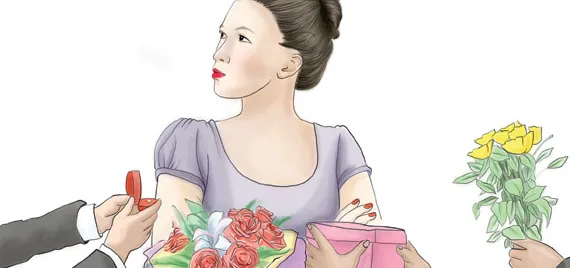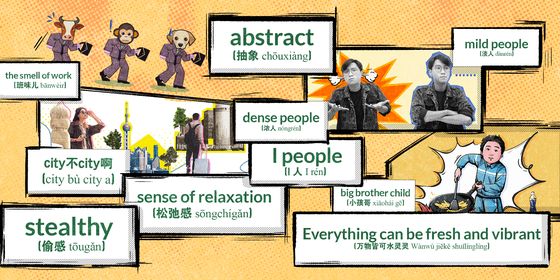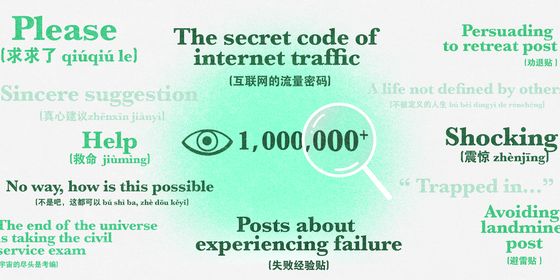Beware of the zuonu
We have all met them. That certain type of woman who is never quite happy with what she has and is a little bit too high maintenance, though claims she is modern, easy-going, and carefree, she is, of course, not. She is a little bit less knowing than she purports to be and constantly brings trouble upon herself. Diane Chambers from Cheers is one, the Sex and the City girls are others. Hell, this type of women is by no means new, even poor Lizzy Bennet from Pride and Prejudice fits the bill. We are talking about the 作女 (zuōnǚ), a type of women who constantly 折腾 (zhēteng, give themselves self-inflicted hassle). They consider themselves strong and independent, yet they are masters at manipulating and conspiring; they aspire to be mature, yet they are whimsical, unpredictable and inclined to temper tantrums.
Taken from the Shanghai dialect, zuonü is now in widespread usage, all thanks to Zhang Kangkang (张抗抗)’s novel of the same name, which centers on a young Shanghainese woman. If someone calls you 作 (zuō), don’t be fooled. You are not being called fake, as in 做作 (zuòzuo). You are being called zuo, because you ask for unnecessary trouble and constantly have karma come around and bite you on the ass. If you encounter a zuonü, cross your fingers and hope that her capricious whims are at an early stage; things are likely to get worse.
There are, as you can imagine, myriad types of zuonü. In the early stages, the zuonü most likely suffers from 公主病 (gōngzhǔbìng, princess syndrome) and is she prone to act like a princess, except she lacks the virtues and credentials that go hand in hand with such nobility.
After fighting with her boyfriend she shrewishly yells, “We are done, I will never see you again,” as she petulantly stamps her foot. Ten minutes later, of course, she bangs on his door, “Why did you not beg for my forgiveness with a bouquet of flowers?”
Then there are the 文艺女 (wényìnǚ), those soul-searching artsy types who jet off to India to find themselves and to get over the last man. While she is there, though, she hopelessly falls for another brooding douche, which doesn’t work out; the tears flow, the soul-searching continues and the cycle never ends.
The zuonü are by no means all fools though. Some know how to take advantage of their talents and have a firm eye for male weakness. They know that zuo cannot be a life choice, yet by mastering the art of throwing a temper tantrum (发脾气 fā píqì), or being coquettish (撒娇 sājiāo) to just the right degree, they get their men to do just anything they want, the blind fools not even realizing they are being ordered around. However, most zuonü are not so skilled, and being zuo is something they just can’t help. They just end up torturing their lovers and bringing trouble on themselves.
作死 (zuōsǐ) is not only an act found amongst women; many an idiot man has said stupid things that, no matter their intention, cause them misery. Thus, 作 is often combined with 死 (die) to form 作死, which gave form to popular slang saying “no zuo no die”, a phrase that has even made it into that most august of institutions, the Urban Dictionary. Take the man, for instance, who foolishly asks his wife, “Who would you save if your father and I fell into a river?” His wife swiftly slaps him, while adding, “How dare you wish for my father’s death.” “No Zuo no die” played to perfection. The best advice you can give to these men and women whatever they brought-on themselves—be it unwanted pregnancy, miserable break-ups, job dismissals, or sentimental heartbreak—is: 别作了! (Bié zuōle! Stop zuo!).
There’s even a delightfully Chinglishy rhyming couplet, much beloved of teenage girls, raging on the Internet, which perfectly captures the zuo predicament: “no zuo no die, why you cry, you try you die, don’t ask why”. And if that isn’t enough to boggle the mind, I don’t know what will.












